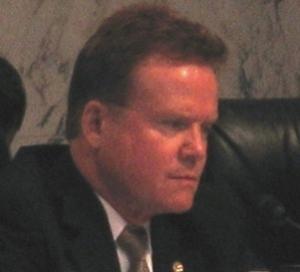Thank you for helping StoptheDrugWar.org publish 700 issues of Drug War Chronicle! The best news is yet to come.
Between now and the seating of a new Congress after the 2012 elections, drug reform is going to be a tough slog on Capitol Hill. But that doesn't mean reformers are going away, or that there aren't battles to be fought and won.
The new Humala government in Peru sought coca grower support by promising to end forced eradication, and now the growers are holding the government to its word.
Congress took a modest step last year to reforming the draconian federal sentences it put in place 25 years ago for drug offenses. More is needed, and your help is needed to make that happen.
Every two years drug policy reformers from across the United States and around the world come to the International Drug Policy Reform Conference to listen, learn, network and strategize together for change. This year the conference is in Los Angeles, in November, and StoptheDrugWar.org is a partner.
The DEA has responded to the latest synthetic drug panic in the only way it knows how -- by enacting bans. This time it's the "bath salts" drugs under attack.
A bill to allow a four-county, eight-year pilot project for industrial hemp production has passed the California legislature and awaits Gov. Jerry Brown's signature.
After a state appeals court effectively shut down dispensaries in Michigan, medical marijuana patients rallied in large numbers in Lansing, the state capital.
The Hawaii teachers' union has finally, definitively fended off state demands that it accept random suspicionless drug testing of teachers.
A Missouri technical college is the first public college in the country to demand mandatory suspicionless drug testing of students, and it will likely be the first in the country to be sued for it too.
South Carolina Gov. Nikki Haley (R) wants to drug test people seeking unemployment benefits so badly she's willing to lie about it.
A dirty Chicago cop goes to prison, a crooked small-town New York officer faces the same fate, a Florida cop facing trial for peddling meth has gone on the lam, and four suburban Chicago cops are being sued.
Events and quotes of note from this week's drug policy events of years past.
The Drug Policy Alliance is hiring for two high-level positions in its NYC headquarters.

David Borden
Dear reformer:
Thank you for helping
StoptheDrugWar.org publish 700 issues of
Drug War Chronicle!
We reach this milestone at a time of challenge in drug policy, but also of unprecedented reform opportunity. Phillip Smith's feature story this issue outlines what to look out for in Congress this year and next, and the issue as a whole provides a partial overview of recent trends in the drug war.
There is much more to be said, of course -- stay tuned for more such overviews from Phil -- and for some thoughts from our executive director, David Borden, on the tasks confronting drug policy reformers; why despite the significance of the challenges the opportunities nevertheless exceed them, if we take the long view; and why your efforts as part of the drug policy reform movement are as important as ever if not more.
In the meanwhile, if you value the service that
Drug War Chronicle and
StoptheDrugWar.org provide, I hope you'll consider supporting us in one or both of two ways:
- We are in between newsletter grants, and that makes our need for individual donations more important right now -- Drug War Chronicle is free to read but not to produce! Click here to make a donation by credit card or PayPal, or to print out a form to send in by mail.
- Please send quotes and reports on how you put our flow of information to work, for use in upcoming grant proposals and letters to funders or potential funders. Do you use StoptheDrugWar.org as a source for public speaking? For letters to the editor? Helping you talk to friends or associates about the issue? Research? Personal edification? Have you changed your mind about any aspects of drug policy since subscribing, or inspired you to get involved in the cause? Do you reprint or repost portions of our bulletins on other lists or in other newsletters? Do you have any criticisms or complaints, or suggestions? We want to hear those too. Please send your responses -- one or two sentences would be fine; more is great, too -- by email [email protected] or reply to a Chronicle email or use our online comment form. Please let us know if we may reprint your comments, and if so, if we may include your name or if you wish to remain anonymous. IMPORTANT: Even if you have given us this kind of feedback before, we could use your updated feedback now too -- we need to hear from you!

Phil Smith and David Guard
If you prefer to donate by mail, you can send your check or money order to:
DRCNet,
P.O. Box 18402, Washington, DC 20036. Make your check payable to
DRCNet Foundation to make a tax-deductible donation for
Drug War Chronicle -- remember if you select one of our member premium gifts that will reduce the portion of your donation that is tax-deductible -- or make a non-deductible donation for our lobbying work -- online or check payable to Drug Reform Coordination Network, same address. We can also accept contributions of stock -- email
[email protected] for the necessary info.
Again, thank you for helping us reach this milestone, and for joining us today to celebrate it -- a brighter future lies ahead, with your help.
Sincerely,

David Borden, Executive Director
StoptheDrugWar.org
Washington, DC
http://stopthedrugwar.org
back to top
There are nearly two dozen pieces of drug policy-related legislation pending on Capitol Hill, but given a bitterly divided Congress intently focused on the economic crisis and bipartisan warfare in the run-up to the 2012 election, analysts and activists are glum about the prospects for passing reform bills and even gloomier about the prospects for blocking new prohibitionist bills.

uphill climb for reform this year
But while drug reform in the remainder of the 112
th Congress may take on the aspect of slow-moving trench warfare, there is work to be done and progress to be made, advocates interviewed by
Drug War Chronicle said. And intensely expressed congressional concern over federal budget deficits could provide opportunities to take aim at the federal drug war gravy train.
Bills to reform drug policy or of relevance to drug policy reform this session run the gamut from hemp legalization, medical marijuana reforms, and marijuana legalization to various sentencing reform and ex-offender re-entry measures, as well as a pair of bills aimed at protecting public housing residents from eviction because a family member commits a drug offense. Also worth mentioning is Sen. Jim Webb's (D-VA)
National Criminal Justice Commission Act of 2011, which, if it were to pass, would be a feather in the soon-to-be-retiring senator's cap.
On the other side of the issue, the most intense prohibitionist fervor this session is centered around banning new synthetic drugs, with five bills introduced so far to criminalize the possession and trade in either synthetic
cannabinoids ("fake weed"), or synthetic stimulants ("bath salts"), or both. Other regressive bills would ban anyone with a drug arrest from owning a gun and require states to drug test welfare recipients. A hearing on welfare drug testing is reportedly coming soon. Conservative Republican-controlled House foreign affairs and national security committees could also see efforts to boost drug war spending in Mexico or other hard-line measures in the name of fighting the cartels.
[To see all the drug policy-related bills introduced so far in Congress, as well as legislation introduced in the states, visit our new Legislative Center.]
While advocates are ready to do battle, the political reality of a deeply divided Congress in the run-up to a presidential election in the midst of deep economic problems means drug policy is not only low on the agenda, but also faces the same Republican House/Democratic Senate gridlock as any other legislation.
"The inertia is not exclusive to sentencing or drug policy reform," said Kara
Gotsch of the
Sentencing Project. "Nothing is moving. There is such a deadlock between the House and the Senate and the Republicans and the Democrats in both chambers. I don't think failure to move in this Congress is necessarily a sign of limited interest in reform, but the political fighting means nothing moves."
"The House is passing stuff with no expectation it will pass the Senate," said Eric Sterling, executive director of the
Criminal Justice Policy Foundation. "The whole Congress right now is in a state of suspended animation, waiting to see whether Obama is reelected or not and whether the Senate goes Republican or not. The gridlock we all see in the headlines around big issues such as taxes and spending filters down to almost every committee and every issue."
And with Republicans in control of the House, the prospects for marijuana law reform in particular are grim in the short term, the former House Judiciary Committee counsel said. "I don't think there is going to be any positive legislative action," Sterling predicted. "The House is not going to take up the medical marijuana bills and it's not going to take up the Frank-Paul legalization bill. They won't even get hearings."
"I don't think any of these marijuana bills will pass with this Congress, but they're very important as placeholders," agreed Morgan Fox, communications director for the
Marijuana Policy Project. "As long as those bills are out there, we can keep bringing the issue in front of lawmakers and continue to educate them about this."
Even stalled bills provide opportunities for advancement, Sterling concurred. "That's not to say there isn't important education that can be done, and organizing and encouraging members to cosponsor good legislation. They need to be educated. The test of whether the effort is worthwhile or not is whether it can be passed this session," he offered. "The political stars are not lined up.

Jim Webb at 2007 hearing on incarceration (photo from sentencingproject.org)
Medical marijuana legislation in Congress includes a pair of bills aimed at making the financial system friendlier to dispensaries and other medical marijuana-related businesses, as well as a bill that would reschedule marijuana for prescription use:
- Introduced by Rep. Jared Polis (D-CO), H.R. 1984, the Small Business Banking Improvement Act of 2011, would protect financial institutions that accept medical marijuana deposits from federal fines or seizures and having to file "suspicious activity" reports. Such threats have prompted major banks to stop doing business with dispensaries.
- Introduced by Rep. Pete Stark (D-CA), H.R. 1985, the Small Business Tax Equity Act of 2011, would allow dispensaries to deduct expenses like any other business and is designed to avoid unnecessary IRS audits of dispensaries and put an end to a wave of audits already underway.
- The marijuana rescheduling bill, H.R. 1983, the States' Medical Marijuana Patient Protection Act, would also specifically exempt from federal prosecution people in compliance with state medical marijuana laws. It was introduced by Rep. Barney Frank (D-MA).
"We're having our grassroots support all three pieces of legislation, but our primary thrust is H.R. 1983," said Kris Hermes, spokesman for Americans for Safe Access. "It's tough to get people engaged at the federal level, but we've mounted a social media campaign and want to promote the bill through Facebook and other methods, getting some viral participation in something that should be important for most patients around the country."
Part of the group's difficulty in getting members to focus on Congress is because they are busy fending off assaults at the state and local level, said Hermes. "We've had many instances of state officials doing an about-face on implementation of state laws or further restricting them, so the battleground has become very focused and localized," he noted.
"That takes energy away from what's going on at the federal level, and that's the real tragedy because it's the federal government that's at the root of all the opposition and tension taking place at the local level," Hermes said, pointing to this year's spate of threatening letter from US Attorneys to elected officials. "Having to fight this locally takes energy away from what's going on at the federal level."
Aaron Smith of the National Cannabis Industry Association, the recently formed trade association for marijuana businesses, said his group was focused on the financial bills. "I'm not holding my breath on the Republicans in the House, but the very introduction of these bills is progress," he said. "For the first time, we're actually seeing some of the industry's issues addressed. We think we'll see more traction for these bills than the broader legalization issue. There's already an industry clamoring for regulation, and federal laws are getting in between states and businesses in those states. We will be seeing state officials supporting these reforms. It's hard to write a check to the IRS or state treasuries when you can't have a banking account."
While the association is not predicting passage of the bills this session, it will be working toward that goal, Smith said. "We can get more cosponsors and we will be working to raise awareness of the issue," he said. "Just a year ago, no one even knew about these problems, now they are being addressed, and that's progress in itself."
But Congress is not the only potential source of relief for the industry, Smith said. "It would be helpful if we could get a memo from the Department of the Treasury clarifying that businesses licensed under their respective state laws are not a banking risk," he continued, suggesting that the existence of the bills could help prod Treasury.
While acknowledging the obstacles to reform in the current Congress, Bill Piper, national affairs director for the Drug Policy Alliance, was more upbeat about the state of affairs on Capitol Hill. "I'm super-excited about the level of support for the Frank-Paul marijuana legalization bill," he said. "It has 15 cosponsors now, and when you consider that it is completely undoing federal marijuana prohibition, that's pretty remarkable. Three or four years ago, we couldn't even get anybody to introduce it. And I'm also pleasantly surprised by not only the number of cosponsors, but who they are. They include Reps. John Conyers (D-MI), Charlie Rangel (D-NY), and Barbara Lee (D-CA), three important members of the Congressional Black Caucus, and most recently, Rep. Raul Grijalva (D-AZ), a member of the Hispanic caucus."
In the event that the Democrats retake the House in 2013, Conyers would become chair of the House Judiciary Committee again, Piper noted. "We would have a cosponsor of a bill to end federal marijuana prohibition chairing that key committee," he said. Until then, Piper continued, "while the bill is gaining steam, it is unlikely to get a hearing in this Congress."
If the prospects are tough for marijuana reform in the current Congress, they aren't looking much better for sentencing reform, although the budget crisis could provide an opening, Piper said. "I'm not optimistic about sentencing reform, but DPA is advocating that it be added to the package of spending cuts and bills designed to reduce the deficit over the long term. If they're talking about reforming entitlements and the tax code, they should be talking about reducing unsustainable drug war spending," he argued.
The Sentencing Project's Gotsch said that while the Hill would be difficult terrain for the rest of the session, there is progress being made on the sentencing front. "The Sentencing Commission has been very good, and the Department of Justice has responded favorably to Fair Sentencing Act implementation. Justice supported retroactivity on crack, and it has also reversed course on prosecuting crack cases prior to August 2010," she said.
Even in the Congress, there are small signs of progress, she noted. "I am encouraged by things like federal good time expansion included in the Second Chance Act reauthorization. That has passed the Senate Judiciary Committee, and it even picked up one Republican vote. That's good, and that's a discussion we hadn't had before."
What Gotsch is not getting enough of is hearings, she said. "It's disappointing that there hasn't been more activity regarding hearings, but next month, the Sentencing Commission will hopefully release its mandatory minimum sentencing report, and I know the advocacy community will be pushing the Senate Judiciary Committee to hold hearings on that."
For Sterling, it is money that is going to move things in the current Congress. "According to the latest Sentencing Commission on federal drug cases, 26% of federal drug cases were marijuana cases," he noted. "With a federal drug supply reduction budget of $15.4 billion, you can argue to the Congress that if you were to pass the Frank-Paul legalization bill, you could save about $4 billion a year."
Sterling is making a similar argument to the deficit-tackling congressional Supercommittee about federal crack cocaine prosecutions. "I argue to them that if they eliminated federal crack cocaine prosecutions, which account for about 20% of federal drug cases, they could save $3.5 billion a year," he said. "Crack is made and sold locally; it shouldn't be a federal case. That should be reserved for people like Mexican cartel leaders."
But while Sterling's argument is logical, he is not sanguine about the prospects. "We could save billions of dollars a year, but I don't think something that gets translated as letting dope dealers out of prison is going to get very far. Still, it's a contemporary argument, and the money is real money. What is clear is that these expenditures are a waste; they're not keeping drugs out of the hands of the community or reducing the crime in the community, and the money could be better spent on something else."
Budget battles offer potential openings to drug reform foes as well. House Republicans are using budget bills to attempt to kill reforms they didn't like, such as opening up federal AIDS funding streams to needle exchange programs, said Hilary McQuie of the Harm Reduction Coalition.
"We have to fight this constantly in the House now," she said. "They're reinserting all these bans; they even put a syringe exchange ban rider in the foreign operations budget bill, so that's a new front, and we can't even fight it in the House. That means we have to make sure the Senate is lined up so these things can be fixed in conference committee. It feels to me like we can't make any progress in Congress right now."
McQuie said, though, that Congress isn't the only game in town. "We're looking less to Congress and more to the regulatory bodies," she said. "Obama's appointments have been pretty good, and just last week we had SAMHSA coming out with guidance to the state about applying for substance abuse block grants. This is the first big piece of money going out with explicit instructions for funding syringe exchange services. Even in this political atmosphere, there are places to fight the fight."
Where the Congress is likely to be proactive on drug policy, it's likely to be moving in the wrong direction. The ongoing panic over new synthetic drugs provides a fine opportunity for politicians to burnish their drug warrior credentials, and legislation to ban them is moving.
"I'm pessimistic about those stupid bills to outlaw Spice and bath salts," said Piper. "One bill to do that just sailed through the House Commerce Committee, and we're hoping it at least goes through Judiciary. The Republicans definitely want to move it, it went through Commerce without a hearing, and no one opposed it," he explained. "But we're working on it. Given that this is the 40th anniversary of the failed war on drugs, why add another drug to the prohibitionist model?"
"Those bills are going to pass," Sterling bluntly predicted. "There may be some quibbling over sentencing, but there's simply no organized constituency to fight it. DPA and the ACLU are concerned about civil liberties, but I don't think that's going to have much of an impact. I'd be very surprised if more than a handful of liberals vote against this."
That may not be such a bad thing, he suggested. "I'm quite willing to say that people who use these things should not be punished, but I'm not sure I want to defend the rights of people to sell unknown chemicals and call them whatever they want," he said.
Even though the evidence of harm from the new synthetics may be thin, it remains compelling, Sterling said, and few legislators are going to stand up in the face of the "urgent" problem. "Even if you argued that these drugs needed to be studied, the rejoinder is that we are facing a crisis. To challenge these bills is asking more courage of our legislators than our system tolerates."
The remainder of the current Congress is unlikely to see significant drug reform, in large part for reasons that have more to do with congressional and presidential politics than with drug policy. But that doesn't mean activists are going to roll over and play dead until 2013.
"People should continue to pressure members of Congress to get on the Frank-Paul legalization bill," urged Piper. "The more cosponsors we get, the more it helps with passing legislation at the state level, and it also helps with getting media on the issue and making it more likely that the bill will get a hearing. That's a top priority for us."
The budget issue also needs to stay highlighted, Piper said. "Whether it's Democrats or Republicans in charge, Congress is going to make cuts, and they should definitely be pressured to cut the drug war. We want the drug war on the chopping block. This is a unique historical opportunity with the recession and the focus on the budget cuts. We have to re-frame the drug war as not only failed, but too expensive to continue."
back to top
Newly installed Peruvian President Ollanta Humala is facing the first serious challenge to his authority as coca farmer unions have gone on strike to protest the resumption of coca plant eradication. Just last month, in a nod to growers whom he had promised he would halt involuntary eradication, Humala's government announced a temporary halt to eradication in the Upper Huallaga River Valley, but now eradication is again underway, and the coca farmer unions are up in arms.

CONPACCP members in the coca fields (photo by the author)
Earlier this week, strikers erected roadblocks on a major regional highway, and two people had been injured and seven arrested by the time
Humala declared a 60-day state of emergency in the
Ucayali region Tuesday night. Coca grower unions are threatening an "indefinite national strike" within two weeks if forced eradication isn't ended.
Coca has been grown in Peru for thousands of years and is an intrinsic part of Andean life. Although international anti-drug treaties consider it a controlled substance, tens of thousands of Peruvian farmers grow it legally under license from
ENACO, the Peruvian state coca monopoly, which then sells the product for traditional, nutritional and industrial uses.
But tens of thousands of other coca farmers are not registered with
ENACO, and their product often ends up being processed into cocaine for the insatiable North American, European, and Brazilian markets. According to the
UN Office on Drugs and Crime, Peru has now surpassed Colombia as the world's largest coca leaf producer with 61,000 hectares planted, up 2% from last year.
"Eighty percent of the population here are farmers who want the government to redirect its eradication efforts," Jaime
GarcÃa, deputy mayor of the town of Padre
Abad in
Ucayali, told local radio in remarks reported by the
Financial Times.
The same newspaper reported that Nelson Torres, head of the
Ucayali chamber of commerce estimated the growers' road blockade was costing $3.6 million a day. He was dismissive of the
Humala government's early steps to contain the conflict. "It's the same policy as the previous government," he told local radio. "You have to have to go on strike or create stoppages just to sit down and talk."
Perhaps
Ricaro Soberon, the head of the Peruvian anti-drug agency
DEVIDA, is belatedly getting that message. He finally met with coca growers on Monday, but not before
he told reporters in Lima last week that the
Humala government will implement a "sustainable" eradication program that replaces coca with alternative crops. The country will also increase anti-drug spending 20% next year, step up interdiction efforts, and institute tighter controls on chemicals used to process coca into cocaine,
Soberon said.
"Crop reduction must be definitive, which means replacing coca with an economically viable alternative," said
Soberon. "This problem is well beyond our ability to confront alone so we're worried about the trend of declining international aid."
Soberon, an attorney and drug policy expert who has been a critic of past eradication programs, has already faced calls for his resignation for being "soft" on coca, and the temporary halt to eradication also raised concerns in the US.
Now, though,
Humala and
Soberon have to balance their sympathy for coca farmers whose support they successfully sought during the election campaign, against demands from Washington and conservative factions inside Peru that they repress the crop. On Tuesday, the national coca growers' union
CONPACCP (the National Confederation of Agricultural Producers of the Coca Valleys of Peru) issued a
communique which announced that they would support an "indefinite national strike" against forced eradication within the next two weeks, even as they defended
Soberon against attacks from the right.

"Coca or death" -- CONPACCP field office (photo by the author)
"Agents of US interests, like [former interior minister] Fernando
Rospigliosi have unleashed a campaign of destruction against one of the few specialists in drug traffic, Ricardo
Soberon,"
CONPACCP noted. "They say that
Soberon's closeness to the
cocaleros is a defect, when in reality, it is a logical consequence of his work as an analyst who has studied deeply the problematic of coca leaf cultivation and who could, if they let him do his job, propose solutions that transcend mere repression and
criminalization of the weakest link in the chain, which in this case is the growers, and not the grand
narcos and the apparatus that they have created around the commercialization of cocaine hydrochloride and its derivatives."
While defending
Soberon,
CONPACCP called for further meetings in a bid to find a nonviolent solution to the conflict and demanded that
Humala fulfill his campaign promise to end forced eradication. It also had specific criticisms of the eradication program in
Ucayali.
"The forced eradication campaign is going on in zones next to the highway that are affiliated with the
CONPACCP, small parcels where farmers deliver their coca to
ENACO, while they are not eradicating the grand plantations of coca that can be found 12 miles from the highway," the union complained. "They are taking photos and making recordings of these roadside
eradications and then showing them next to images of [cocaine production] maceration pits as if they were at the same site in order to deceive the population."
Authorities are not going after the big plantations because they have "corrupted" the eradication program to be "untouchable,"
CONPACCP continued. To not eradicate the big plantations connected to the drug trade while eradicating small plots of registered farmers results in "incoherent anti-drug policies of the government," the union argued.
The eradicators themselves are behaving lawlessly,
CONPACCP complained. "Besides the unjust eradication, they are robbing the animals and goods of the population" and have "unjustly detained" seven peasant farmers "whose immediate liberation we demand."
CONPACCP is supporting the current "indefinite strike" in
Ucayali and is giving the
Humala government two weeks to show good faith before it calls for a national coca grower strike.
Humala and
Soberon are going to have their work cut out for them as they attempt to chart a course that pleases both the coca growers and Washington.
back to top
Twenty-five years ago Congress enacted severe mandatory minimum sentences, condemning thousands of mostly low-level, mostly nonviolent drug offenders to years, sometimes decades in prison. In part because of these and similar "sentencing guideline" penalties, the United States now suffers from an incarceration rate unprecedented in the history of our own country or any other.
Last year Congress took a modest step in the right direction, unanimously passing the Fair Sentencing Act -- raising the quantities of crack cocaine needed to trigger certain infamous five- and ten-year sentences, and eliminating mandatory minimums for crack possession. But much, much more is needed to address these unjust and exorbitantly expensive sentencing laws.
Please write Congress today to call for passage of the following important bills:- H.R. 2303, the "Major Drug Trafficking Prosecution Act," sponsored by Rep. Maxine Waters (D-CA) -- eliminates mandatory minimums to reduce the incentive prosecutors have to go after large numbers of low-level offenders.
- H.R. 2316 and H.R. 2242, sponsored by Rep. Bobby Scott (D-VA), bills to make last year's crack sentencing reforms retroactive; and to continue the reform by eliminating "cocaine base" from the federal code entirely, thereby reducing penalties further to reach the same level as powder cocaine offenses.
When you are done, please make a call, send a letter or pay a visit to your US Representative and your two US Senators to urge them to pass sentencing reform -- you can reach them via the Congressional Switchboard at (202) 224-3121, or look them up on our web site. Please use our tell-a-friend form to spread the word about this important legislation too.
Every day that passes without sentencing reform is a day that thousands of people who don't need to be in prison, who may have never deserved to go there, continue to languish needlessly behind bars, separated from their friends and families who want them back. Thank you for taking action.
Ongoing reporting on drug sentencing is available on our web site here, or by RSS feed here.
back to top
StoptheDrugWar.org (DRCNet) is pleased to be a partner in the upcoming 2011 International Drug Policy Reform Conference, this November 2-5 at the Westin Bonaventure in Los Angeles.
The Reform Conference, sponsored by our friends at the Drug Policy Alliance, is the major biennial gathering of drug policy reformers of all kinds. The last one, held in Albuquerque in 2009, brought together over 1,000 attendees representing 30 different countries. This year attendees will have the opportunity to spend three days interacting with people committed to finding alternatives to the war on drugs while participating in sessions given by leading experts from around the world. Click here to register -- early bird rates are available through September 16, and discounts are available for students.
Some testimonials from the 2009 conference:
"You leave the conference inspired and informed. Meeting this crowd of wise, energetic kindred spirits recharges your reform batteries."
--Michael Jourdan, Centre of Alcohol and Drug Research, Copenhagen, Denmark
"This is the only conference that combines X-treme intelligence, passion, and practical applications. It is the best I ever attend."
--Patt Denning, Harm Reduction Therapy Center, San Francisco, California
"A living breathing think tank of like minds, crafting out solutions that keep people's dignity and human rights intact."
--Waheedah Sahabzz-El, Community HIV / AIDS Mobilization Project, Philadelphia, Pennsylvania
"This conference provided a new beginning for me, I now have a true passion for DPR."
--Susanne Widmer, Albuquerque, New Mexico
"The Reform Conference gave me the courage to return to my Canadian community and give voice to the common sense of Drug Policy Reform. The experience provided me with the evidence, language and tools to be a credible, educated leader in changing the way we approach the issue of substance use in our community."
--Patty Hajdu, Thunder Bay District Health Unit, Thunder Bay, Ontario, Canada
Hope to see you there.
back to top
The DEA announced September 7 that it was using its emergency scheduling powers to impose a ban on three synthetic stimulants widely marketed as "bath salts." The three drugs are mephedrone, methylone, and 3,4 methyleneoxypyrovalerone (MDPV).

Ivory Wave and other products containing "bath salts" will soon be banned. (image via Wikimedia)
But the ban on bath salts drugs comes as a rising chorus has begun to criticize the prohibitionist approach to new drugs, with European researchers noting that new synthetics have been emerging at a rate of one a week in the past 18 months.
The ban does not go into effect for at least 30 days, after which DEA will publish in the Federal Register a Final Order to ban them for a year, with a possible six-month extension.
The emergency ban makes it illegal to possess or sell the three substances while the DEA and the Department of Health and Human Services (DHS) conduct further studies to determine whether the substances should be permanently controlled. In the meantime, the emergency order will designate the bath salts drugs as Schedule I controlled substances.
"This imminent action by the DEA demonstrates that there is no tolerance for those who manufacture, distribute, or sell these drugs anywhere in the country, and that those who do will be shut down, arrested, and prosecuted to the fullest extent of the law," said DEA Administrator Michele
Leonhart. "DEA has made it clear we will not hesitate to use our emergency scheduling authority to control these dangerous chemicals that pose a significant and growing threat to our nation."
The bath salts drugs appeared in the US in the last couple of years and are sold under names such as "Ivory Wave," "Vanilla Sky" and "Bliss," but according to reports from poison control centers and hospital emergency rooms, their effects can sometimes be anything but blissful. Reported effects from users seeking help or being transported for medical attention include disorientation, extreme paranoia and violent episodes.
According to the DEA, 33 states have already moved to ban or otherwise regulate the bath salts drugs, and the agency cited "an increasing number of reports" of problems related to the substances as a reason it moved to ban them.
The DEA declared a similar temporary emergency ban on synthetic
cannabinoids earlier this year, but a report from the British newspaper
The Guardian on Saturday suggested such an approach to new synthetic chemicals may be a losing battle. That article noted that the
European Monitoring Center on Drugs and Drug Addiction had reported the emergence of 40 new synthetic drugs in the first five months of this year. Many of those reported new drugs were derivatives of
methcathinone, as are the three drugs banned Wednesday by the DEA.
Given the plethora of new substances, researchers and analysts told The Guardian that attempting to ban new drugs is not a feasible solution. Instead, they should be studied, regulated, and
controlled.According to Paulo
Deluca, co-principal investigator at the European Union-funded
Psychonaut Research Project, which studies new drug trends, it's becoming hard to even keep up. "It's also becoming very difficult to know exactly how many new compounds there are, because you have all these brand names and when you test the batch they are different from the following one," he said.
Attempts to ban one new substance after another are like "a cat chasing its tail," said Steve
Rolles of the
Transform Drug Policy Foundation. "Each time they ban one, another emerges. It seems to show a blindness to the basic market dynamic, effectively creating a void for
backstreet chemists to create another product."
Rolles added that new drugs should be studied and regulated like conventional drugs. "It's just ridiculous, irrational really. If you're not looking at the regulatory options, then you're not following an evidence-based approach -- you are following a political mandate."
But enforcing prohibition is the mandate that the DEA has -- or rather, attempting to enforce it. And as unlikely as they are to succeed at that goal, they are are equally unlikely to ever willingly embrace evidence-based policies, the new ban shows.
back to top
A bill that would allow farmers in four California counties to grow industrial hemp has passed the state legislature and now sits on the desk of Gov. Jerry Brown (D) awaiting his signature. The bill, Senate Bill 676, the California Industrial Hemp Farming Act, passed the Senate earlier this year, then passed the Assembly last week.

Hemp field at sunrise. Will California farmers be able to enjoy its fruits? (votehemp.org)
Sponsored by state Sen. Mark Leno (D-San Francisco), the bill would allow farmers in those counties to grow industrial hemp for the legal sale of hemp seed, oil, and fiber to manufacturers. The bill specifies that hemp must contain less than 0.3% THC, the primary psychoactive ingredient in cannabis, and farmers must submit their crops to testing before it goes to market.
The eight-year pilot program would end in 2020, but not before the California attorney general would issue a report on law enforcement impact and the
Hemp Industries Association would issue a report on its economic impact.
"California is one step closer to building a successful hemp industry in the Central Valley," said Leno after the Assembly approved the bill on a vote of 49-22 on September 7. The Senate gave its final approval to Assembly amendments the following day.
While hemp bills have passed the state legislature previously, SB 676 is the furthest reaching yet and managed to pick up support from businesses, farming groups, local government, labor, even law enforcement. Supporters ranged from the California Grange and the California Certified Organic Growers to the United Food and Commercial Workers to the Kern County Board of Supervisors and the Kern and King county sheriffs, both of whom wrote
letters of support in favor of the bill.
"Hemp is a versatile cash and rotation crop with steadily rising sales as an organic food and body care ingredient. Today, more than 30 industrialized nations grow industrial hemp and export it to the US. Hemp is the only crop that is illegal to grow yet legal for Americans to import," explained Eric
Steenstra, president of
Vote Hemp and executive director of the Hemp Industries Association.
The US hemp market is now estimated to be about $420 million in annual retail sales, but manufacturers must turn to foreign suppliers because the DEA, which refuses to differentiate between industrial hemp and recreational and medical marijuana, bars its cultivation here.
back to top

photo courtesy Bruce Reith, South West Michigan Compassion Club
Medical marijuana supporters angered by resistance from elected officials and a state appeals court decision effectively shuttering dispensaries statewide rallied in large numbers at the state capitol in Lansing September 7.
The Detroit News estimated the crowd size at about 1,500 people.
Touting signs reading "Patients are not Criminals" and "Weed Deserve Better," as well as signs directing their anger toward Attorney General Bill
Schuette, who praised the appeals court decision, protesters poured onto the capitol lawn by the busload. Young and old, on foot and in wheelchairs, the crowd listened and cheered as speakers denounced the decision and praised marijuana for improving their health.

photo courtesy Bruce Reith, South West Michigan Compassion Club
, a Republican, has argued that medical marijuana use is only justified in limited circumstances and that any sales are illegal. The appeals court ruling was "a huge victory for public safety and Michigan communities struggling with an an invasion of pot shots near their schools, homes, and churches," he said.
One of the biggest cheers of the day came when a plane carrying a sign reading "
Schuette: Keep the Patients Off the Streets" flew over the capitol.
"This has never been about cannabis," said Robert Redden, 61, a medical marijuana cardholder whose Oakland County home was raided in 2009. "This is about our rights."
Under last month's court ruling, most of the estimated 400 to 500 dispensaries in the state have shut down or are in the process of doing so. That leaves the nearly 100,000 card-carrying medical marijuana patients in the state with limited options for obtaining their medicine.
Under the state law approved by voters in 2008, patients can possess up to 2.5 ounces of usable marijuana and can grow up to 12 plants or have a designated caregiver grow it for them. But many seriously ill people are too sick to grow their own, and if they don't happen to know someone who can grow for them, now their only option is the black market.

photo courtesy Bruce Reith, South West Michigan Compassion Club
But buying medical marijuana on the black market has its risks. Not only do patients have to get involved in street-corner illegal drug sales, they also face the risk of contaminants in the street weed they purchase. The owner of a lab in Gaylord that tests medical marijuana subjected some samples of street weed to analysis and
found mold and high levels of pesticide contamination.
"I want our medicine to be legal," said Stephanie
Whisman, whose Bay City dispensary was raided. "I'm tired of them shutting down dispensaries. I've been raided twice. I've never been charged with anything. But they've taken everything I've owned."
Whisman said she didn't want to have to buy pot on the street. "I have my card. I went through my doctor. I did everything legal on my part. Why can't I go to a safe place to get my medicine?"
back to top
Ever since the Hawaii State Teachers Association (HSTA) agreed to make members submit to random suspicionless drug tests in a 2007 contract with a state, then backed away from that pledge after rethinking the rights it was agreeing to give up, the teachers and the state of Hawaii have been locked in a battle over random drug testing. That battle is now over.

Hawaii teachers won't have to provide these to keep their jobs. (image via Wikimedia)
While the administration of Republican
Gov. Linda
Lingle fought hard to force the teachers to submit, even taking the battle to the courts, the administration of Democratic
Gov. Neil Abercrombie has taken a different course. In an agreement reached Monday, the state agreed to end its insistence on random drug and alcohol testing for teachers.
Negotiators for
Gov. Abercrombie agreed to the settlement "to avoid further expense and risk of litigation," according to
KITV-4 in Honolulu.
"For the past four years, the
HSTA the ACLU have been challenging the random drug testing," said
HSTA President
Wil Okabe, who added the issue had become one of teachers' rights and the constitutionality of random
suspicionless drug tests.
"We're very happy to see that no teachers will be exposed to this unconstitutional, expensive and unnecessary program," said ACLU attorney Dan
Gluck.
While the
HSTA does not support random
suspicionless drug testing of teachers, the agreement does allow for drug testing with cause. The union is okay with that. "
HSTA believes schools should be drug-free," said
Okabe.
back to top
Students arriving for the start of fall classes last week at Missouri's Linn State Technical College (LSTC) have been told they must take a mandatory drug test in order to attend classes at the school. The move by college officials makes the school the first public institution of higher education in the land to require suspicionless drug testing, and that has raised the hackles of the American Civil Liberties Union (ACLU), which has announced it is seeking plaintiffs to challenge the policy in court.

Linn State Technical College
According to the school's FAQ about drug testing, students who refuse to undergo drug testing will be subject to "an administrative or student-initiated withdrawal," while those who test positive will be put on probation and required to complete either an online educational program at their own cost or assigned to complete unspecified "appropriate activities."
They have 45 days to retake the drug test and pass it, after which they will be subject to random drug testing for the rest of the semester. Students who fail both the first and the second tests will be subject to "student initiated withdrawal or an administrative withdrawal," the academic equivalent of "you can quit or you're fired."
Linn State admits in its FAQ that it does not believe "
LSTC has any greater student drug use issue than other colleges," but justifies the drug testing by saying it is preparing students for the real world. "Drug screening is becoming an increasingly important part of the world of work," the FAQ said. "It is also believed it will better provide a safe, healthy, and productive environment for everyone who learns and works at
LSTC by detecting, preventing, and deterring drug use and abuse among students."
The problem for Linn State and its
suspicionless mandatory drug testing program is that the federal courts have viewed drug testing by government entities as a search under the Fourth Amendment. That requires particularized suspicion and the issuance of a search warrant.
Limited exceptions have been carved out, including for workers doing tasks that involve public safety, for law enforcement personnel doing anti-drug work, and for high school students involved in student athletics or extracurricular programs. But those are the only exceptions to the broad rule that there can be no government drug testing absent reasonable cause.
The ACLU champions this restrictive view of government's limited ability to demand drug testing -- its Florida affiliate announced last week that it is
suing the state of Florida over a new law requiring welfare applicants to undergo drug tests -- and is ready to take Linn State to court.
"Americans have a right to privacy, and that includes the students of Linn State," the group wrote in a
blog post last week. "The ACLU is looking for plaintiffs to challenge this illegal practice, and we want to hear from you. If you go to Linn State, please join our
Facebook group,
email or call us at (314) 652-3111. Unlike Linn State, we are here to protect your rights, not violate them."
Linn State is charging all incoming students $50 apiece to pay for their drug tests, but that is not going to cover the legal costs of defending what is very likely to be found an unconstitutional invasion of adult students' right to be free of unwarranted searches.
back to top
South Carolina's Republican Gov. Nikki Haley wants to drug test unemployment recipients before they can receive benefits, she told a group of supporters last Thursday, and she wants it so bad she was willing to resort to lying about the extent of the problem.

Nikki Haley (image via Wikimedia)
"I so want drug testing. I so want it," Haley said during a question-and-answer session at the Lexington Rotary Club. But she added that that some hurdles had to be cleared first. "We have to make sure this works. We have to see what the return is on it. And, we have to see federally and legally if we can do it."
As for why South Carolina needs to drug test unemployment applicants, Haley claimed that huge numbers of applicants for jobs at the Savannah River Site nuclear facility failed post-interview drug tests.
"Down on River Site, they were hiring a few hundred people, and when we sat down and talked to them -- this was back before the campaign -- when we sat down and talked to them, they said of everybody they interviewed, half of them failed a drug test, and of the half that was left, of that 50%, the other half couldn't read and write properly," Haley said."That's what we have in South Carolina," she continued. "We don't have an unemployment problem. We have an education and poverty problem."
But as the
Huffington Post reported Friday, Haley was full of it. The Post talked to Jim
Giusti, a spokesman for the Department of Energy, which runs the facility. He said he had no idea what Haley was talking about.
"Half the people who applied for a job last year or year 2009 did not fail the drug test,"
Giusti said. "At the peak of hiring under the Recovery Act we had less than 1% of those hired test positive." And the River Site doesn't even test applicants,
Giusti added. "We only test them when they have been accepted," he said.
South Carolina does not have a demonstrable problem with drugged out unemployed workers. What it does have is an unemployment rate of 10.9% and an unwillingness to spend state money to support the unemployed. In June,
Gov. Haley signed into law a bill cutting unemployment benefits from 26 to 20 weeks while lowering unemployment taxes on businesses.
At least four other Republican controlled states have slashed the length of time out of work people can receive unemployment benefits, but no state has yet to pass a law requiring drug testing for unemployment beneficiaries, although several have been introduced this year. Republican-controlled Wisconsin and Indiana have passed laws that cut unemployment benefits for job applicants who fail a drug test.
If
Gov. Haley's fictions about drugged out workers are the best that proponents of drug testing the unemployed can do, perhaps the South Carolina legislature will reject her welfare for drug testing labs proposal.
back to top
A major pain pill bust takes down a trio of TSA agents and a pair of cops, adirty Chicago cop goes to prison, a crooked small-town New York officer faces the same fate, a Florida cop facing trial for peddling meth has gone on the lam, and four suburban Chicago cops are being sued. Let's get to it:
In Stamford, Connecticut,
three Transportation Security Administration officers and two police officers were arrested Tuesday in a series of DEA-led busts that stretched from Stamford to West Palm Beach, Florida. Altogether, "Operation Blue Coast" rolled up 20 people for participating in a ring that sent tens of thousands of
oxycodone tablets from the Sunshine State to the northeast. It all unraveled after an April bust of a courier in Stamford who told the DEA he was regularly shuttling thousands of pills at a time, sometimes driving, sometimes flying out of Palm Beach International Airport in West Palm Beach. The TSA officers arrested included Christopher Allen, 45, and John Best, 30, TSA who were based at the Palm Beach International Airport; and Brigitte Jones, 48, a based at Westchester County Airport in New York. They are accused of taking at least $20,000 in payments from the courier to allow him to pass unmolested. Also going down in the busts was Florida State Trooper Justin
Kolves, 28, who took payments to allow free passage on Central Florida highways, and Michael Brady, 36, a Westchester County police officer, who allegedly took cash to allow drug profits through the airport without detection. All 20 of those arrested on
oxycodone trafficking, conspiracy, and associated charges face up to 20 years in prison.
In Chicago,
a former Chicago police officer was sentenced September 7 to 12 years in prison for being part of a group of cops in the department's elite Special Operations Section who carried out armed robberies, home invasions, and other crimes across the city. Jerome
Finnigan, 48, has already served four years in prison, so he should be a free man again in six or seven years.
Finnigan was considered the ringleader in a group of officers who targeted mostly drug dealers for robberies to seize drugs and cash, which the cops then pocketed. The SOS scandal, as it is known in Chicago, has already cost the city more than $2 million in settlements of civil rights lawsuits from people victimized by the rogue cops, and many cases are still pending. Seven other SOS members have already pleaded guilty to state charges, but
Finnigan and three others were indicted on federal charges in April. He pleaded guilty to conspiring to murder another officer prepared to testify against him and to tax charges related to the money he stole.
In Poughkeepsie, New York,
a former Poughkeepsie police officer pleaded guilty last Friday to providing information about drug investigations to drug dealers in exchange for cocaine for his personal use. David
Palazzolo, 47, a 20-year-veteran, pleaded guilty to three felony counts and is looking at between three and 10 years in prison when he is sentenced in December.
Palazzolo admitted using the town police computer system on at least four occasions to keep a drug dealer apprised of investigations and to warn him about the times and locations of drug surveillance operations carried out by town narcotics officers. He is free on $100,000 bail pending sentencing.
In Joliet, Illinois,
four Joliet police officers were named as defendants in a civil rights lawsuit filed by a local man who alleges they falsely arrested and imprisoned him in a drug arrest last year. Patrick Moore's lawsuit claims that Officer Tom
Banas made a crack cocaine deal with another man whom Moore accompanied. The videotaped drug deal went down inside a vehicle, while Moore remained standing outside the car, but officers arrested and charged him with delivering crack cocaine anyway, and he spent five months in jail awaiting trial before prosecutors dropped the charges. In addition to Officer
Banas, the suit names
Sgt. Patrick
Cardwell, and Officers Alan
Vertin and John Wilson, and alleges they falsified written police reports to bolster their false account of the arrest and hide their misconduct. The suit asks for $5 million in compensation.
In Miami,
a Boynton Beach police officer has gone on the lam days before he was scheduled to go on trial for selling more than 500 grams of methamphetamine. Officer David
Brito boarded a flight from Miami to Brazil on August 24, the same day he removed his ankle monitor and broke his 11:
00pm curfew.
Britto was Boynton Beach's "Officer of the Year" in 2010, but faced life in prison if convicted on the meth charges. He was scheduled to go to trial this week.
back to top
September 18, 1969: In testimony before the Senate Special Subcommittee on Alcohol and Narcotics, Judge Charles W.
Halleck of the District of Columbia Court of General Sessions explains why he no longer issues jail sentences to youthful marijuana offenders: "If I send a [long-haired marijuana offender] to jail even for 30 days, Senator, he is going to be the victim of the most brutal type of homosexual, unnatural, perverted assaults and attacks that you can imagine, and anybody who tells you it doesn't happen in that jail day in and day out is simply not telling you the truth... How in God's name, Senator, can I send anybody to that jail knowing that? How can I send some poor young kid who gets caught by some zealous policeman who wants to make his record on a narcotics arrest? How can I send that kid to jail? I can't do it. So I put him on probation or I suspend the sentence and everybody says the judge doesn't care. The judge doesn't care about drugs, lets them all go. You simply can't treat these kinds of people like that."
[Ed: This quote was given in 1969. By repeating it in full, Drug War Chronicle does not intend to imply that any kind of sexual assault is acceptable.]
September 21, 1969: In an attempt to reduce marijuana smuggling from Mexico, the Customs Department, under Commissioner Myles Ambrose, acting on the orders of President Richard Nixon, launches Operation Intercept, subjecting every vehicle crossing the Mexican border to a three-minute inspection and to many observers marking the beginning of the modern war on drugs. The operation lasts two weeks and wreaks economic havoc on both sides of the border, but fails to seriously impact the flow of marijuana into the US.
September 19, 1986: Federal Judge H. Lee
Sarokin says, "Drug testing is a form of surveillance, albeit a technological one. Nonetheless, it reports on a person's off-duty activities just as surely as if someone had been present and watching. It is George Orwell's Big Brother society come to life."
September 15, 1994: The Boston Globe prints the results of a reader call-in survey that asks, "Do you favor legalizing marijuana for medical use?" Ninety-seven percent of the callers say "yes."
September 17, 1998: Ninety-three members of Congress vote yes in the first vote on medical marijuana to take place on the floor of the House.
September 20, 1999: The public is finally informed of the results of Washington, DC's Initiative 59, the Legalization of Marijuana for Medical Treatment Initiative of 1998, after Judge Richard Roberts orders the release of the tally previously suppressed by Congress. Voters had supported medical marijuana by 69-31%.
September 17, 2002: Santa Cruz, California officials allow a medical marijuana giveaway at City Hall to protest federal raids.
September 19, 2002: The Guardian (UK) reports that Mo
Mowlam, the former cabinet minister responsible for drugs policy, is calling for the international legalization of the drug trade as part of a more effective drive to combat terrorism.
September 21, 2004: In a speech, US House Speaker Dennis
Hastert (R-IL) says, "The illegal drug trade is the financial engine that fuels many terrorist organizations around the world, including Osama bin Laden."
back to top
The Drug Policy Alliance (DPA) is the nation's leading organization promoting alternatives to the drug war that are grounded in science, compassion, health and human rights. Together with its allies and supporters, DPA advances policies that reduce the harms of both drug use and drug prohibition and seeks solutions that promote safety while upholding the sovereignty of individuals over their own minds and bodies. DPA works to ensure that the United States' drug policies no longer arrest, incarcerate, disenfranchise and otherwise harm millions -- particularly young people and people of color who are disproportionately affected by the drug war.
DPA actively engages in legislative and ballot initiative campaigns as well as public education to advance its objectives of rolling back the excesses of the drug war and promoting sensible drug policy reforms. Our work to date has resulted in significant reductions in incarceration, expanded access to drug treatment and harm reduction programs, and legalization of medical marijuana in many states. Current priorities include ending marijuana prohibition, significantly reducing criminal penalties and incarceration for drug law violations, integrating harm reduction principles and policies into local, state, national and international drug control policies, and stimulating broader and more informed debate about alternatives to punitive, prohibitionist drug policies.
DPA also operates an advocacy grants program that seeks to promote policy change and advance drug policy reform at the local, state, and national levels. The grants program awards both annual and "rapid response" grants to organizations working for reform.
DPA's work is performed by the Drug Policy Alliance, a 501(c)(3) organization, and Drug Policy Action, a 501(c)(4) organization. DPA has an annual operating budget of approximately $10 million. Currently 45 staff members work in DPA's headquarters in New York City as well as in California, Colorado, New Jersey, New Mexico and Washington, DC. DPA is governed by a 16-member Board of Directors.
Deputy Director, Programs:
In this newly created role, the Deputy Director, Programs, reporting to the Executive Director, will work with the Executive Director, board and staff to develop and implement DPA's vision and strategic direction and ensure that its work is innovative, high-impact and strategically focused. S/he will be a thoughtful, creative and dynamic leader and manager who excels at leading a talented and engaged team.
The Deputy Director, Programs will supervise seven direct reports, including the Managing Director, Strategic Initiatives, Director of National Affairs, Director of Legal Affairs, and the California, New Jersey, New Mexico and New York State Directors. It is anticipated that s/he will devote 40% of her/his time to the supervision of a dedicated and professional staff of 26, 30% to external relations and outreach, and 30% to senior management team responsibilities.
During the first twelve months of employment, the Deputy Director, Programs will be expected to:
- Thoroughly immerse herself/himself in DPA -- its history, mission, philosophy, programs, structure and operations, finances, constituencies, organizational culture and values, and potential;
- Establish a solid working partnership with DPA's Executive Director in order to bring forth his best ideas and efforts, gain his support, and undertake special projects at his behest;
- Begin to develop and leverage relationships with key opinion leaders -- including partner organizations, non-profit leaders, and government and elected officials -- among diverse communities including and beyond drug policy reform supporters; involve DPA colleagues in external relationship building as appropriate;
- Get to know DPA's staff, understand their programs thoroughly, work collaboratively with them in order to bring forth their best ideas and efforts; serve as a sounding board and act as a liaison between staff and the Executive Director;
- Get to know members of the Board of Directors, Honorary Board of Directors and other key DPA stakeholders; use their talents, resources and ideas to enhance public policy activities; encourage their ongoing participation;
- Provide oversight and continuity for DPA's current public policy programs;
- Become an effective spokesperson for DPA, increasing awareness of DPA's mission and work and broadening the organization's reputation and visibility among policymakers, media, funders and other constituencies.
On an ongoing basis, the Deputy Director, Programs will be expected to:
Management:
- Provide oversight, strategy, and direction for DPA's public policy program;
- Serve as a strategic partner with and senior advisor to the Executive Director;
- Serve as a key member of DPA's senior management team, participating in the development and implementation of policies, strategy, short- and long-term planning, and financial and operational goals and objectives;
- Lead the public policy program in a fiscally sound manner; develop organizational budgets in tandem with the Managing Director of Finance and Administration; approve and monitor program expenses; ensure that appropriate systems and procedures are in place to support DPA's goals;
- Supervise, coach, mentor and evaluate senior public policy managers; work closely with senior managers to ensure the flow of relevant information and encourage effective coordination between and among teams; recruit, train, support and work to retain a diverse, engaged, and talented staff; identify and develop professional growth opportunities for staff.
Program:
- In partnership with the Executive Director and public policy staff, lead efforts to identify public policy priorities and facilitate decision making;
- Work with staff to ensure that DPA remains at the cutting edge of drug policy reform work, ensure consistent high-quality and maximum impact for DPA's work;
- Develop and plan special/new initiatives and projects;
- Work with program directors and the communications department to plan and coordinate DPA's participation in public forums, among national coalition partners, at national and international conferences, and in the media; engage consistently with a range of external audiences to promote DPA's agenda;
- Collaborate as appropriate with the development department to assist with raising funds to suport DPA's public policy work;
Ideally, the Deputy Director should have the following experience and qualifications:
- At least 10 years of experience managing and leading people with an emphasis on organizational development; ability to connect to staff, both on an individual level and in groups; capacity to ensure accountability and to develop and empower top-notch leaders; experience in managing change is desirable;
- Extensive experience at the national or local level in policy development, including leading policy development and advocacy coalitions; demonstrated substantive strength in one or more key areas of DPA's work is desired;
- Proven ability to lead and engage in strategic planning processes; able to think critically, objectively, analytically, and strategically and to set priorities; a successful track record of initiating and fostering the growth of programs, projects and/or organizations;
- Excellent oral and written communication skills; well-developed public speaking skills are a plus;
- Credibility and experience to connect DPA to resources and opportunities outside the organization;
- A Bachelor's degree is a minimum requirement; a law degree or advanced degree in a relevant discipline is preferred.
Ideally, the Deputy Director will be:
- Committed to the values that inform DPA's work; a catalyst with vision who can create excitement and energy around DPA's programs and encourage others to support the goals of the organization;
- Persuasive, persistent, and creative in the pursuit of DPA's goals; strategic and resourceful;
- An outstanding relationship builder with the integrity, maturity, confidence, wisdom, patience, flexibility, creativity and the problem-solving skills necessary to gain the trust and confidence of DPA's staff, board, funders, and other constituencies;
- A team builder; able to delegate and prioritize multiple activities and responsibilities; one who inspires collaboration, functions decisively, and treats people fairly; one who understands the subtleties of motivating, directing and working with diverse, strong, independent personalities and work styles;
- Savvy, and able to help staff advance their goals and maximize their contributions in a challenging organizational climate; able to manage complex decision-making processes and negotiate organizational change; diplomatic;
- A highly skilled communicator and a keen listener;
- Emotionally mature and self-confident, with a sense of humor.
Deputy Director, External Affairs
In this newly created role, the Deputy Director, External Affairs, will provide the leadership, strategic direction, management and coordination for expanding DPA's fundraising and outreach to new and emerging constituencies. Reporting to the Executive Director, and in partnership with staff, board, and key volunteers, the Deputy Director will create and implement fundraising and outreach strategies that increase the organization's financial resources and broaden support for DPA's work among existing and new audiences, including and beyond drug policy reform stakeholders.
The Deputy Director, External Affairs will be broadly responsible for coordinating fundraising, outreach and communications activities throughout the organization; direct supervision of the Managing Director, Communications and the Managing Director, Development; and oversight of a dedicated and professional team of 14. It is anticipated that s/he will devote 60% of her/his time to development, 30% to communications and
outreach, and 10% to senior management team responsibilities.
During the first twelve months of employment, the Deputy Director will be expected to:
- Thoroughly immerse herself/himself in DPA -- its history, mission, philosophy, programs, structure and operations, finances, constituencies, organizational culture and values, and potential;
- Establish a solid working partnership with DPA's Executive Director and undertake special projects at his behest;
- Establish a solid supervisory and mentoring relationship with the Managing Directors of Development and Communications;
- Begin to develop and leverage relationships with key opinion leaders -- including business, academic, and non-profit leaders, government officials, and celebrities -- among diverse communities including and beyond drug policy reform supporters; and involve DPA colleagues and board members in external relationship building as appropriate;
- Get to know DPA colleagues and programs, and collaborate with them to inform fundraising, outreach and communications strategies;
- Get to know members of the Board of Directors, Honorary Board of Directors and other key DPA stakeholders; use their talents, resources and ideas to enhance fundraising activities; and encourage their ongoing participation as donors and solicitors;
- Become an effective spokesperson for DPA, increasing awareness of DPA's mission and work and broadening the organization's reputation and visibility among policymakers, media, funders and other constituencies.
On an ongoing basis, the Deputy Director, External Affairs will be expected to:
Management:
- Serve as a strategic partner with and senior advisor to the Executive Director and play a leading role on DPA's senior management team, participating in the development and implementation of policies, strategy, planning and financial and operational goals and objectives;
- Lead the development and communications departments in a fiscally sound manner; develop organizational budgets in tandem with the Managing Director of Finance and Administration; approve and monitor program expenses; and ensure that appropriate systems and procedures are in place to support DPA's goals;
- Supervise, coach, mentor and evaluate senior colleagues; work closely with senior managers to ensure the flow of relevant information and encourage effective coordination between and among teams; work with managing directors to recruit, train, support and work to retain a diverse, engaged and talented staff; and identify and develop professional growth opportunities for staff.
Fundraising:
- In partnership with the Executive Director, board and staff, provide the leadership, strategic direction, management and coordination for expanding DPA's fundraising efforts;
- Maintain a proactive, creative leadership role in the identification, cultivation and solicitation of individual and institutional donors; cultivate and directly solicit key donors, working with the Executive Director, key staff, and Board, as appropriate;
- Develop and maintain close working relationships with the philanthropic community and individual donors; serve as a visible spokesperson and advocate for DPA's mission and programs in the funding community;
- Prepare the annual fundraising plan in collaboration with the Executive Director and the development team for presentation to the Board of Directors; provide detailed reports about fundraising progress to the Executive Director and the Board on a regular basis;
- Mentor development staff on fundraising practices and professional development;.
- Provide management oversight of development staff.
Communications:
- Oversee all external communications about DPA's mission, programs, activities, and results;
- Leverage DPA's visibility, reputation and influence in diverse high-profile academic, cultural, scientific and political settings by maximizing exposure of the Executive Director, DPA staff, and DPA messages among key constituencies beyond the growing drug policy reform community.
- Oversee continued integration of communications and development efforts to ensure consistency of message.
- Represent the Executive Director and DPA generally in public forums, among national coalition partners, at national and international conferences, and in the media.
- In partnership with staff, capitalize on the existing success of and further develop DPA's reputation and credibility as a resource among key local, national and international media;
The ideal candidate will have the following experience and qualifications:
- At least ten years of proven, successful experience building and expanding complex fundraising and communications initiatives in a sophisticated organization with a reputation for quality and excellence, ideally with extensive major gifts expertise;
- A successful track record of personally identifying, cultivating and soliciting individual donors and institutions for support; experience with social justice fundraising is desirable;
- Demonstrated ability to work effectively with and quickly gain the respect and support of various constituencies, including board and staff members, donors, civic leaders, policymakers and members of the media;
- A track record as an effective communicator; Highly skilled in writing and speaking, with the ability to communicate DPA's mission and interests to diverse audiences;
Ideally, the Deputy Director, External Affairs will be:
- Committed to the values that inform DPA's work; a catalyst with vision who can create excitement and energy around DPA's programs and encourage others to support the goals of the organization;
- Persuasive, persistent, and creative in the pursuit of DPA's goals; strategic and resourceful;
- An outstanding relationship builder with the integrity, maturity, confidence, wisdom, patience, flexibility, creativity and problem-solving skills necessary to gain the trust and confidence of DPA's staff, board, funders, and other constituencies;
- A team builder; able to delegate and prioritize multiple activities and responsibilities; one who inspires collaboration, functions decisively, and treats people fairly; one who understands the subtleties of motivating, directing and working with diverse, strong, independent personalities and work styles;
- Savvy, and able to help staff advance their goals and maximize their contributions in a challenging organizational climate; able to manage complex decision-making processes and negotiate organizational change; diplomatic;
- A detail oriented self-starter and finisher;
- Emotionally mature and self-confident, with a sense of humor.
To learn more about the Drug Policy Alliance, please visit www.drugpolicy.org.
To apply for the position, please submit a substantive cover letter and current resume to Lauren I. Gumbs, Senior Partner, Gumbs + Partners, [email protected].
The Drug Policy Alliance is an equal opportunity employer and considers all applications without regard to race, color, religion, creed, gender, gender identity, gender expression, national origin, age, disability, socio-economic status, marital or veteran status, or sexual orientation.
back to top















